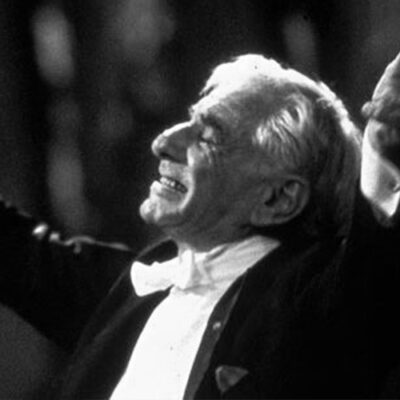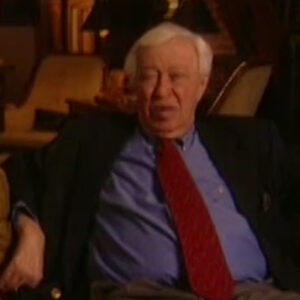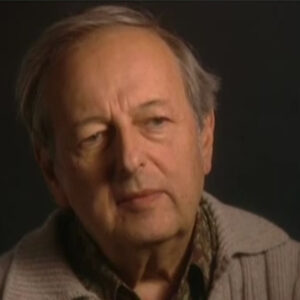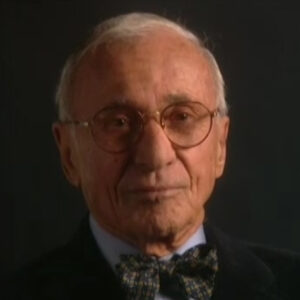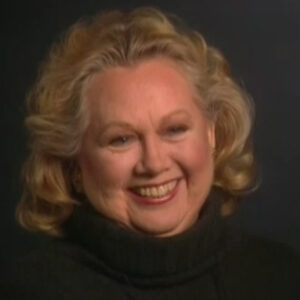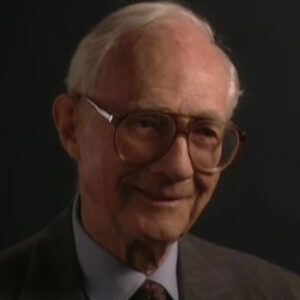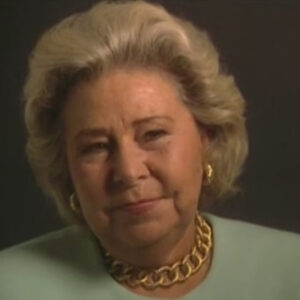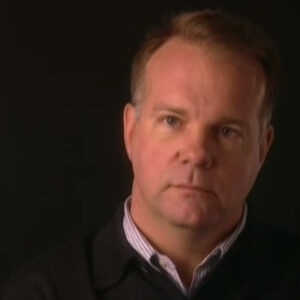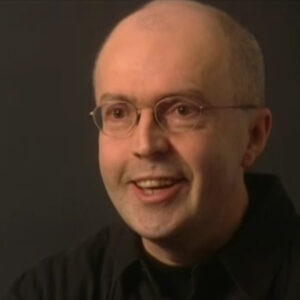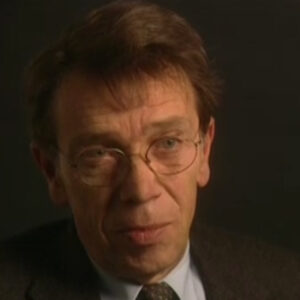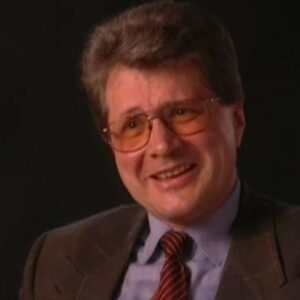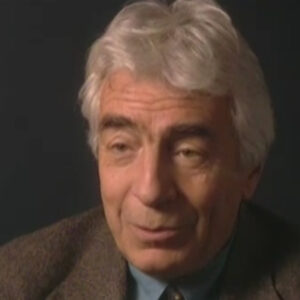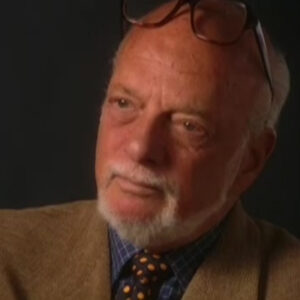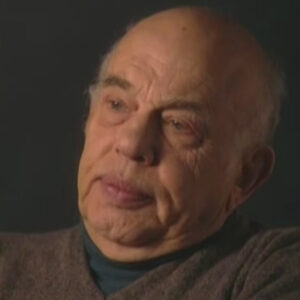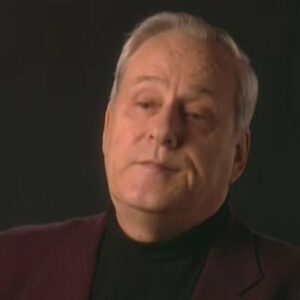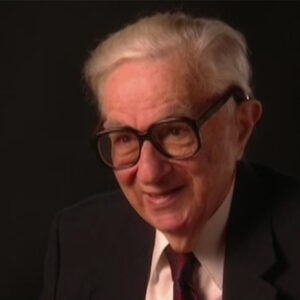Speaker I met Glenn in Israel at the end of the first Arab-Israeli war, the war which. The. People fought to make the state an heroic wall, and I can’t remember when it was that the very end there, if the fighting was still going on in the Negev and there was one hotel in this small, very poor, very brave country in Tel Aviv and a a humbler hotel, it would be hard to find. It was called the Armaan. I was engraved in our hearts. It had the only grand thing it had was a bar. It had a long mahogany bar. Otherwise it was beyond basic. The beds were army cots covered with army blankets, no sheets or anything like that. So cupper. The Great War photographer and I were talking at one end of the bar and into this room came a vision in white tie and tails. This was a country in which the most ragged clothing was worn by all it, including the fighting forces. And in came Khemlani, surrounded as usual by a Dorret and cup. And I looked at him with some mirth. But Cupper knew his sister. So he came over and spoke to us and he asked me where I lived. And I told him Cuernavaca, which in those days 48, 49, was the most heavenly village with dirt roads and very few people. And Ali asked me about it and I told him and he made a most extraordinary statement, which I have never forgotten because it seemed so weird based on a meeting of perhaps 20 minutes to inform me that he would always believe what I said. So I looked into the great surprise. That’s all right.
Speaker And the next thing was that then he apparently had an engagement in Mexico City. I don’t know if he was conducting or playing the piano or whatever it was. And in any case, thereafter, he simply showed up at my house to announce that he was staying there. And I had a very small house with a very small child and one spare room. So Lenny said he would like to have a grand piano. I pointed out to him that there was absolutely no room for a grand piano or we would have to eat off the floor. That was a choice, no question. And then and then the other thing was that he loved games, which I detest. And so he wanted to play Scrabble all the time. That was done. So very shortly I found him a house, a beautiful house, big beautiful house with a swimming pool about three houses down the road from me. And he settled in there and and there he stayed. He was. He was. Composing that piece, which turned into trouble in Tahiti, but I should said once that although exposed to music my whole life, I know nothing about it. And also, it isn’t a necessity to me at all. So then he was sitting there pounding away at trouble in Tahiti. And the rest of the time we were just a great thing about him. Always in my life was we just had fun so we would go and play tennis on the only existing tennis court, which was like the creators of the moon, the surface. Neither of us knew how to play tennis. We just sort of batted the ball over. Had you never knew where it was going about rocking with laughter and talking incessantly. And so we amused ourselves together very happily because he was great fun. And and then Koussevitzky died. And so he left to go to the funeral and. And then he got married and brought Felicia back to Cuernavaca, so I found them another house this time instead of being beautiful like the first, it was large and had a lovely gun. But it was furnished in a manner which must have cost Felecia physical pain in that it was that kind of furniture the Mexicans do for tourists painted with little flowers and things, although pretty awful. I couldn’t find anything else anyhow. There was room for a grand piano and there they stayed for a very long time, months. And they were wonderfully funny because I think Felicia was in awe of Lenny and and I think Lenny found just living in one place with one person all the time, very difficult. So one day I’d walk with one and then one day I’d walk with the other in the afternoon and listened to both of their extraordinary difficulties with the Mossad, which I fact myself had found very difficult. So that didn’t surprise me. And meantime, he was that was his main quality was he was funny and fun and of course, intensely life loving. Presently they departed of. I thought I did, too, and and then I next saw them for any length of time when they lived out their first flat, which was on 57 Street, practically opposite whatever it’s called, Carnegie Hall.
Speaker I love that flat. That was a nice flat place. It was small and cozy and very pleasing. And then and of course, it only went from power to power, strength to strength. And and and I loved Felicia. Felicia was a wonderful friend, a very loving and reliable friend, and she was beautiful. So that was it was a pleasure just to look at her. And she introduced into Lenny’s life elements, the ones that weren’t there. She had great taste and. And very discreet and elegant manners, Lenny, on the other hand, was just impulsive and flamboyant and rambunctious and.
Speaker A force of nature and all that and with an equally alarming tendency to buy and wear very amazing clothes, I profited a great deal because as Felicia found them too unbearable, she gave them to me. So I wore a lot of clothes, but with great pleasure.
Speaker The things she said this is to offer, you can’t you really cannot wear this jacket or whatever. Whatever Mazzini got there, they moved to Park Avenue. And it seemed to me the rot set in because it was that was a sort of cold over rich place.
Speaker I don’t think he paid very much attention to. To things like that, he he paid attention to his work and and to whatever he found fun to do, but to his external arrangements, I don’t think mattered to him very much of it. He could he never could make up his mind about anything. Felicia finally discovered that although she most dutifully and properly would ask him what he wanted, what they should do, and then she finally discovered is perfectly impossible. So she just decided herself he couldn’t couldn’t be bothered. And then I remember with great pleasure, Felicia had to go to Chile. Her mother was ill. So we took the plane and then we spent the entire night wandering around the village from. Pub to pub, he loved jazz, he or whatever the music of the time was, you know what, I rock and roll, I don’t even know, but he loved that. So we went from place to place, getting drunker and drunker, happier and happier all night long. And then and then I think he pulled himself together and went back to work. I didn’t like his concerts and didn’t go to them, but I loved his rehearsals. And I used to go to rehearsals because they they had something to do with words. I understood them on the basis of writing that they would sit on his stool, perfectly quiet, unlike his flamboyant conducting, perfectly quiet and never losing his temper, absolutely patient. And the orchestra would play. To me, it sounded naturally perfect.
Speaker And then he’d tap his baton and say, we will go back to and then point to one member or so of the orchestra and say he was late or so. All of this in the quietest possible voice. And again. And again and again. And not related to that in my mind, related to writing and therefore through by the exactitude and repetition and the perfection. And the musicians loved him because he of course, he didn’t shout because he never lost his temper, because he was considerate.
Speaker And that I I always went to when when I was in New York or wherever it was day, and I went to his rehearsals, then he became more and more famous. They moved to the Dakota. Felecia made a life, her own separate life of of really with the aid and direction of Roger Baldwin, who had founded the Civil Liberties Union. He was a friend of my family. So I’ve known him all my life. And he was a sort of mentor to Felicia and Lenny, by the way, on politics. Oh, what was, in my opinion, completely sound and. Right. That’s to say I agreed with him, not in the sense of political parties because neither one of us had anything to do with that. But in his attitude, his opinions on the state of the world. And it was something we agreed completely. And and he often took positions of, for instance, during the war, he did care packages for Russia. I can’t remember what it was called, but in any case, it was the equivalent of the ones for Britain. As a result, after the war, he had no passport. They decided that he was a red or a communist. Absolute rubbish. After the war, during the whole period of the McCarthy regime, America was a cesspit in any case. And so he had no he had no passport. He used to get a special permit to go to Vienna to conduct, and that was it. Go and come back. His paper that went on quite a long time, which didn’t seem to worry very much, but that was on the basis of what he had done for Russia during the war. And he went on doing her of her work, which was. Generally, civil liberties, I would have thought that both of them, their world view was weak against the strong. Uh. And Lenny and then he just went on getting more and more and more famous and and not as funny as a result of tennis was one of the examples. He took lessons to our great surprise. And and then and he got apparently he got pretty good, I think. And then he got interested in winning, which I thought was low class, not all suitable, who just first supposed to be a joke. And then he then I used to see him Broadmoor, because whenever he came here or someplace else, we met up. I went to Israel with Phoenicia and every once and then we engaged in swimming and then I went twice with him alone again. We mainly were just interested in swimming and laughing and then he did it and then he did his work. Towards the very end, he got the people who surrounded him, managers of, you know, sort of I don’t know what happens to stars, but it can’t be good. So he got sort of cocooned. It’s very hard to see him used. I used to go to the Savoy and eat with him night after he finished, whatever he was doing, whatever concert he was doing. But he was terribly isolated by all the people around him who were making arrangements for him and protecting and promoting and all the rest of it. I think fame is very bad for people, very hard to handle and very isolating, very bad. So it wasn’t much fun as he at the end as he was at the beginning.
Speaker Do you think he was aware of that? Then you talk about it.
Speaker No, not really. Uh. I talked to him about it. What did you say?
Speaker I tended to point out to him that this was all sort of unnatural and. Disagreeable, all these people hanging around saying nice try and, you know, too much fuss, as if his concerts were the equivalent of a cure for cancer in some world shattering thing. I don’t know musically, they were of great importance, I suppose. But after all, that’s what it was. It wasn’t really going to change the stars in their courses or save the human race. I thought it was just too important, said so.
Speaker And he felt very much alive in the hands of. It wasn’t his doing and he just he kind of did what they told him. Aside from aside from the actual work that was his that, you know, they said you have this appointment, you have that appointment. He went along with it. I think partly because he was always like that. He wasn’t the external management, practical management of life wasn’t his bag. And now it was completely taken out of his hands. And he.
Speaker Yes, and then he’s trying to eat. He used to talk a lot more about things outside of himself, such as what was going on in the world and what we thought about what was happening here, there and everywhere and books. And then he began to talk more about his own performances, you know, oh, what a big hit. They started a concert hall conducting an opera. Something had been. So I objected to that and. Didn’t mind, I mean, he he he wasn’t. He he was spoiled in the sense that there was too much adulation around him, really too many people say maestro, maestro and caringly, but he himself wasn’t really spoiled. I mean, I don’t think he entirely lost his sense of proportion about himself in the world. And he was fun and he was very kind and very generous man. I think Felicia was of enormous help to him in keeping in keeping things in proportion. She disliked this whole, you know, this whole show off thing very much. And I think she was I think she was a very steadying influence. And he greatly admired and respected.
Speaker He did he didn’t know her value.
Speaker You said earlier a couple of things I’d like to go back to, that you thought that Felicia was in all of them in their first marriage?
Speaker Yes, she was, because he was he was already quite famous. And she she knew a lot about music. They used to play a duet together and therefore knowing a lot about music. She also had tremendous respect for him in that way. And she was young and herself self unproved. And so she was a. Yes, she was in all of this, you know, this superior creature. I don’t think it lasted terribly long, I think. And certainly there in the beginning, I think I think what happened was she then I think she always had great respect for him as a musician and otherwise, and also tremendous good manners in that he was always treated as the head of the family. But in point of fact, Felicia ran things and decided things and organize things and took really the whole family the responsibility of it was hers. And then there was this shooting star who arrived, hugged the children too much. He was very expressive. He did everything at. Sort of twice normal speed, if not three times the normal speed. He also said something about.
Speaker When they moved from the Osborne to Park Avenue. That’s when the rock began to set in, assuming that.
Speaker Park, the Park Avenue flat was the beginning of riches and and it was, it seemed to me, to grand and too cold and and it it was the sort of the external and visible sign of external fame and wealth. Lennon, by the way, didn’t really know anything about money. I mean, somebody else handled that and he spent it, but he didn’t. He spent it. I don’t know, eating and drinking and taking cars around and buying ridiculous clothes and giving it away and no other way.
Speaker He wasn’t an acquirer of things. And then when they moved to the Dakota, that was all right, because that was made into although it was huge, it was it was made into something that was more like a human home than than Park Avenue. And he loved it. And and again, this was all foolishness. Doing everything was was up to her. He just he just sat back and enjoyed the good food and the comfort. But he himself was I don’t think money meant anything to him. He just had it in somebody else looked after it. Let’s talk a little bit about Lebanese politics. You said you were in agreement with them. Shares certain.
Speaker Attitude about the world, how would you characterize? Well, the loose general term now is liberal, which doesn’t really mean very much, uh, we will we will, of course, absolutely agree about the horror of McCarthyism. We. Generally, I would think social justice had a lot to do with it and a feeling of the.
Speaker The stupid and cruel behavior of governments, I think, operate sort of off on their own with very little attention to the people they govern or any other people, we we would have agreed.
Speaker Well, certainly on Vietnam, of which I was fiercely against here.
Speaker Yes, in the sort of loose general and wrong terms which are now applied, one would have said left, but that doesn’t mean anything either. It had to do with feeling what was decent and right for people as opposed to realpolitik and and power wielding of power with indifference to people. And of course, we were both enormously attached to Israel. Now, a very unpopular state, thanks to Mr Netanyahu’s government and also the fanatical Orthodox Jews. But, uh, otherwise, uh.
Speaker To this sense of Israel, which we both knew from the beginning and therefore had I haven’t been there since 1970, but it was knowing how it began and why it began and who it began with was something that neither of us ever forgot.
Speaker But all kinds of things. I mean, in a general way, as we read the papers and listen to what was happening in the world, I would have said that we were both on the side of the angels and and he he didn’t aside from occasional statements and things, he didn’t really take any outstanding political positions. But that was how he felt. He did actually on Vietnam and on disarmament.
Speaker But he he did very active stance on I don’t know I don’t know what he did because that was probably in America and I and I was here and I reported I went to Vietnam from here and then back. And this was early 1966 and from 1968 when there was the Tet Offensive. And everybody saw on television that the South Vietnamese officer shooting a bound prisoner and the little girl in flames. And the feeling change before then, it was it was seriously bad and even dangerous to be anti Vietnam. And I did go back to to the U.S. after I’d been to Vietnam. I remember speaking in church basements to an audience of about 10 passionately against it and persuading the Ladies Home Journal to take an article on the wounded children. You had to be so careful. I mean, they were regarded as very brave to do this because anything you said in favor of Vietnam, against the war and on behalf of the Vietnamese people rounded you instantly as traitorous to the US and certainly a confirmed communist. But I don’t know what you I don’t remember seeing it when I went back there. And I, I only went briefly. I don’t remember seeing we may not have been there.
Speaker I don’t know how familiar you are with the range of one’s work, but certainly very, very beautiful letter. You wrote to him about West Side Story, which I like to talk about the moment that I loved West Side Story.
Speaker Well, that was a story that I just I love because, I mean, there you really have to know much of anything to love that. I mean, that’s just huge, hugely enjoyable one. And the the music is wonderful. The story is wonderful. That the words are wonderful. It was just heaven.
Speaker You wrote about it very succinctly. You said, how can it be called a musical comedy? It is a musical tragedy and were it not for the most beautiful music in the dancing, which is like flying, people would not be able to bear, look and see and understand. You talk about it as a sociological document turned into art and how it frightened you that you were literally frozen fear at some of the scenes, particularly in the drugstore. Do you remember any of this? No. And then you you said what baffles me now is that all the reviews and everyone who has seen the show has not talked about this and this only a mirror held up to nature and what nature. I do not feel anything to be exaggerated or falsified, falsified. We accept that our friend is beautiful and refined the shapeless, raw material of life.
Speaker And surely this musical tragedy is a warning. Is this evoke anything? Yes, I did think it was a. Uh, Absurdistan, aside from its great. Shown that it was saying a lot, but it’s long ago, I don’t remember it clearly. He did another one called, I think, on the tongue. And in that there was a song in which somebody had towels which were marked yours and yours. And he said that was because of me that inspired him. Very pleasing, you know, that notion of yours and mine. But yours and yours. So much of Lenny’s work. Is is.
Speaker I don’t know if I would use the word sociological, but motivated by a. I mean, Kennedy, which is a satire of McCarthyism mass, which is an anti-war piece. His symphonies, which are really dialogues with God about faith and the meaning of faith and the meaning of life, I think he had a need to. Express his politics and his feeling about the world in his work and his despair about it, but he always ended up, it seems to me, with a pretty optimistic statement, a kind of catharsis. And I’m wondering what you think about that. What was the optimistic part of learning that wanted to always see the the hopefulness, potentially and despairing situation because he was himself, that he was himself basically a.
Speaker A believer in what he believed in, God he believed in, I suppose he believed in the ultimate goodness of human beings. He certainly believed that life was worth living, although you knew you had to do what you could to make it worth living for others. But he was basically cheerful. He was basically optimistic rather than gloomy. He said he did love being alive. And I suppose if you love being alive, you are cheerful so that there is at various moments the the blackness looked so tremendous that you could do nothing but rage and scream against it. But he would have thought at the end somehow, rather, this will come right. He wouldn’t have said this is so awful that we give up, we despair. And that was that was him. And I didn’t I never saw Condi or heard it or not. So I don’t know anything about them. But did you know Mark?
Speaker No, but you wrote to Lenny when he died. Again, a very beautiful letter.
Speaker No, he must be feeling about Mark’s death. What do you what do you know about their relationship and how much of Mark’s. So social agenda and for nothing, it wasn’t sure, but you you seem to be aware that he would be very, very despairing about it. I think everyone has told me that Marfa’s bluestones death had a big effect on the freedom that I would like to go back to talk a little bit about Israel.
Speaker Do you remember? Were you there in 48 with living in Israel? Yeah. Were you there for the famous concert that he did in the ruins where 5000 Israeli soldiers went to hear him play Mozart Piano Concerto in the Egyptian army that they were amassing for an attack? Do you hear about that?
Speaker No, it’s it’s a wonderful story. But so so you were you were there 48, but not with this particular concert.
Speaker No, he I think this was his second visit. I only got there at the end. And I think that he had just given a second concert. I don’t know about the first one. I was I don’t know what I was doing, something I didn’t have my eye on the ball and didn’t get there until very late. So but he had owing to his clothes, which, of course, was so wonderful in that in that context, he didn’t know any other way to dress. That’s how you dress if you were giving a concert and the fact that it looked so strange in that country at that time. That also wouldn’t have crossed his mind.
Speaker What did you say to him that made him say, I have no idea.
Speaker I told him about Cuernavaca and how beautiful it was and what the life was like there. And then here was this declaration of faith, which is very surprising. So suddenly they have this declared and which he continued forever thereafter.
Speaker He never disputed. I suppose he never disputed my motives. And it may also have been a rest for me not to have somebody say maestro, maestro all the time and have very little interest in anything except the perfectionism of the rehearsals. And not only because I related it to writing and we never talked about his either his musical. Well, I tell you, another wonderful thing about learning was that he had he was completely envious. I never heard him.
Speaker You know, how people it is an awful quality to suggest that somebody else is getting more attention than they deserve or any forms of envy or jealousy. And he really didn’t have it at all. He never spoke about anything or anybody in in terms of envy or jealousy or competition. I’ve just thought of that. And that is that is wonderful. Because of the kind of heights of stardom which he reached, it would have been perfectly possible to go in for that.
Speaker Didn’t he never talk to you about his music? Did he ever talk to you about his conflicts, about composing versus conducting versus all the many gifts that he had and how he wrote about it endlessly? I mean, he was a man in constant conflict about about how to use his talents. Did he ever speak? You know, he was really tormented by.
Speaker I mean, he really felt that the ultimate, the ultimate. For him was to be a great composer.
Speaker Oh, yes, he. He took composing most seriously. Of course, it’s the most difficult the most difficult aspect is to out of nothing to create something much harder than to conduct somebody else’s.
Speaker So, yes, I knew that that was that was the thing that mattered most to him. And then he’d have then take time off to do it and be unable to. And then. Yes. And then you speak about that that’s like writer’s block, you know, and he’d take time off and go to Fairfield for several months and nothing happened or didn’t happen the way he wanted it to go on about it. But it’s a really extraordinary letter to him.
Speaker You said here, I think of you often in love and admiration and also pity. The is because I think you not looked at a name wrong like center of everything truth, and that’s all your gifts, which are great, amazing and of the sort to make one jump the joy and satisfaction and your own qualities as a human being. Sure. Blissfully human, so loving, so open, so sensitive, so blind, so imbecile, so wise. You have not yet got the hang of it. Essentially what you’re saying is. There he is, there’s too much, really about what everyone else thinks. And you say, what I want to tell you is this we are alone. Each one is alone. When it really matters, no one can make or destroy. You can do. There are no mirrors to do it. There is no road to walk except once on the road. The only person you must agree to truly believe is you. And your only danger to any of us is corruption.
Speaker That corruption, I mean, doing not what we intended. We believe in the struggle for what is expected of us and is applauded. That is an incredible statement and very true. Can you talk about that, what was happening in Lenny’s life? I don’t know. What’s the date? Is it dated?
Speaker Your letters aren’t dated. I know it’s mad because it’s not dated and I haven’t saved his great.
Speaker Some of them. We have the.
Speaker We sometimes we have the postmark, and that gives us the date, there isn’t one on this, is it?
Speaker Got a letter had this one does not exist. Lady part. A lot of them do. And so as a result, these letters are not of a particular order.
Speaker But I’m sure that whatever inspired you to write this is something that went through his life.
Speaker I went through mine when I saw him, that would have been a plea against the corruption of stardom of fame.
Speaker But you it seems to go a little deeper when you say corruption, but I mean by that, I mean doing not what we intend and wish and believe in and striving for, but what is expected of us and is applauded.
Speaker What would what do you think you were dredging up these old things? What do you think you meant in that?
Speaker That must have been a plea against the.
Speaker It’s against the corruption of fame, against the. The effects of too much applause, too much attention to too many sycophants, too many admirers of too many people telling him how wonderful he was. I suppose that must be in order.
Speaker Why do you feel that, Lenny? I did not really trust in his own work that he needed to be told how wonderful he was. That he didn’t have didn’t wasn’t able to hold that mirror up to himself and be confident about what he saw.
Speaker He certainly never showed it. I mean, he never showed anxiety before concerts or before performing a.
Speaker He. I think he liked an audience rather than feared it. I would think, although all of this is news to me, that that was I must have seen him at some point and decided that he was being over, clouded over, praised, getting himself lost in the attention and expectations of others, always behaving in such a way.
Speaker And and so I was, it seems to me, with enormous and surprising tact, rather unlike me calling him to book on it. Felicia once said how wonderful Lenny had been before he became a star.
Speaker And and, you know, fame is is terrible stuff. It’s almost impossible for people to handle. And and particularly if you not only have it, but everybody around you, intimately around you is telling you all the time, not Felicia. I don’t know his friends. I never knew them.
Speaker I just knew him. But certainly the the maestro KLAC around him. It’s very, very hard to to sort of. See yourself as a grain of sand rather than the center of the universe. And he did get towards the end. I remember almost the last time I had dinner with him at the Savoy after his concert to which I hadn’t gone out, and he was talking too much about what a success he’d been in Vienna and other places. And and, of course, that’s boring as well as being bad for you. And I remember thinking this is awful something. You know, he’s he’s he’s lost his grip. He’s listening to the what we used to say. Read your own clippings.
Speaker The police should I mean, if she. She was obviously expressing disappointment at the change in LENNI, but how do you think it affected their marriage?
Speaker A marriage which many said was born of a contract of uncertainty. But it was a very difficult marriage. Certainly more for her and for him. Um.
Speaker She showed some signs of impatience, which she never had earlier. Uh.
Speaker She was very disciplined and very reserved for Felicia.
Speaker She wouldn’t easily have either talked or shown her emotions.
Speaker I think that she compensated by doing her own things. Uh.
Speaker And and her interest in the children. It’s very hard to discuss their marriage. I don’t think I don’t think I can. I don’t think I. Well, in the first place, I don’t understand it. I don’t understand anybody’s marriage, but I’m sure that it was. Very. Very complicated, but again, I think more for her than for him when Lenny left and they had the brief separation.
Speaker He wrote to him again, a very wonderful letter. I’m sure you wrote to Felicia as well, but hadn’t seen that letter you wrote that basically said, you know, this is don’t despair to too much.
Speaker I mean, particularly for the children. Unless you despair, the easier it will be for them. And maybe this is some kind of a necessary breather. But under no circumstances should you think about divorce. I mean, the have essentially you’re saying you’ve had a wonderful 25 year relationship and friendship and this space apart is not the end of the world, no matter what you both might be feeling right now, but under no circumstances get divorced. Do you remember your feelings about when you found out the things separated, how you felt about that?
Speaker Oh, it came about because of Lenny’s indiscretion and it was pretty indiscreet, and he said something which was quoted in the papers, which was so.
Speaker No definite and offensive to Felicia that she couldn’t stand it anymore, but his. Something there was some boy and.
Speaker And then I don’t think they came back together until Felicia was was dying of cancer. I’m sure they that’s very important to the children.
Speaker The doctor clarified that he came back because he wanted to come back. Then Felicia said that she had cancer. The children have told me that that bothers me very much, that all the biographies have gotten it wrong. He didn’t come back because she had cancer and came back because because, as Jamie said, he frankly couldn’t make it out there as a gay man in the world just did. And I needed to they needed family and so forth.
Speaker But then then she got cancer after he came back and she had cancer before, it just got worse. She had breast cancer before when he was there. She’d had she’d had a breast removed while he was there. And then it was that it returned and was much worse. And I don’t know whether I mean, if if they say he came back of his own free will, I remember going there to dinner one night and then he was not then living there is there for dinner and speaking with tenderness about the beauty of homemade mayonnaise because, you know, they have this factotum who was always there and still is there.
Speaker Oh, yeah.
Speaker And and Felecia mocking that, but. But she’d already had a breast removed and it was the return in much more violent form. And.
Speaker And I came over twice to see her, and both times I was furious with Lenny because he he he seemed to breathe all the air, it was almost as if it was his cancer, you know, not hers.
Speaker But she was delighted that he was there. She was. Touchingly grateful to him. For being there, I didn’t like him at that point. I thought he. I thought, you know, he really mustn’t be center stage. It was Patricia who was center stage, but he did love her. Did you see much of him after she died?
Speaker Yes, I saw him for as long as, you know, he came over here, I hardly ever went back to the U.S. after 1970 after my mother died, but I saw him here and and then I saw him in New York just a few weeks before he died, went to I went to see him.
Speaker Did you know that he was dying or going to die and that when you saw.
Speaker I didn’t I didn’t I didn’t know it was as imminent, I was going away and and. We talked. We discussed suicide and and I remember telling him, you know, just hang on a couple of weeks and I’ll be back and he’ll sort this out.
Speaker He was clearly he by now had been reduced to a wheelchair and various things like that. And I didn’t realize how how imminent it was of. But he was.
Speaker How was he then?
Speaker He thought it was a sad way to end, I’m saying that. And I suppose he was quite young, wasn’t he? He was 70 something. What age was he?
Speaker Well, God knows it was his it was his lungs, wasn’t it, then his lifestyle.
Speaker It’s really amazing. He lived until 72 because he ate at the most extraordinary hours and the most extraordinary stuff. And of course, he smoked like a chimney the whole time and drank and ate and never slept. I mean, however he slept, it was the wrong cycle. And he he used to carry around at the Savoy. There’d be one of those portable bicycles which had a music stand on it so that he as he pedaled away, he could study scores, but I don’t think he pedaled much. He wasn’t what you’d call a healthy liver by any manner of means.
Speaker And he’s he’s had emphysema. Extraordinary sort of swelling here. I suppose it was his lungs, but. But in a funny way, never seem to be ill here. You just live this unhealthy life and it seemed to suit him. It certainly paid no attention. He didn’t do anything to take care of his health.
Speaker I think he was surprised to be dying. How serious? I didn’t know this, but I actually do know it from one of your letters. How serious do you think?
Speaker The suicide thought was I mean, you handled in your letter very beautifully and you said. After all, you did burn your candle at both ends in the middle and wherever else that candle can be burned and a bill was ultimately due. But I want you to stop the self-pity bit. It is undignified and priceless and a bad performance and make up your mind to bear some pain. Come on, people do. We’ve seen worse than what you’ve got. And to get back into more rational shape after which if you think you cannot live without millions applauding that. OK, but we must discuss this when you are in shape. Um.
Speaker And then you said, keep all those kindly people away, you don’t need sympathy, you need someone to say fuck up. Since when? When are you the saddest creature on God’s earth? You. I don’t think you’ve got cancer for a start.
Speaker I think you’ve had doctors, but I can’t find it right now. But you make a reference to this, too, to the suicide thing.
Speaker Yes, he was I think I think I was complaining about his self-pity and all the people, you know, coming in in hushed tones and making it seem to me everything worse by by their gentle and awestruck and everything performance.
Speaker Of course, this is a complete lack of knowledge because I don’t know what is wrong with him. I, in fact, think it was suicide.
Speaker And what do you mean when you said.
Speaker When I think I I think he couldn’t get well and he was just going to be living a sort of static invalid’s life and knew it and that his doctor knew it, too. And they just agreed that this was the proper, proper way to end things, which I agree with. Absolutely. I mean, the minute you can’t live in any way that resembles how you want to or how you were able to, I think suicide is the answer. I mean, any other feeling about it?
Speaker Do you think that when you saw him a few weeks before he died and he talked about what a sad end of was, did he talk about how he felt about what he had achieved in his lifetime?
Speaker No, he didn’t know, because from various things he’s written, one gets the feeling that he kind of despite all the fame and all the accolades and all the everything, but somehow or another, he felt he had really written anything terrible, composed anything terribly important.
Speaker Was that at the very end then? Which is quite sad, I think, because of some point in time. And he did write very beautiful music.
Speaker I think that’s, general, that at the end of one’s life, when he thinks it really hasn’t amounted to much. I don’t think that’s peculiar to any. All I wouldn’t that wouldn’t surprise me that you’d have a feeling of he had not accomplished everything he meant to.
Speaker I would think that was very normal, but anybody who sets out to do anything.
Speaker Do you remember I would change the subject for a moment because you write about it. Do you remember seeing Lenny on television and how you responded to him on television?
Speaker That’s when he was being a teacher on television, wasn’t it?
Speaker He referred to his kindergarten with 10 million pupils and one of the letters.
Speaker Yes, I must have seen some of those and thought they were extraordinary, but he was a teacher, he liked being a teacher, like telling people, explaining things to people. Did he do that with you?
Speaker No, it was useless because as his subject was music and art and it wasn’t mine, there wasn’t only wasn’t anything to teach me about, you know, if if music had been my thing, of course, he would’ve been a wonderful teacher, but he knew it wasn’t. So aside from giving me those Long-playing records, which is the only music I’ve got and accompanied me and the solitary nights and the Rift Valley, I have about 14. I just played them over and over.
Speaker But no, it wasn’t any teaching describe him physically.
Speaker We talk because you talk and many of your letters, how beautiful is he when he was young, he was very his face was very, very beautiful. He was smaller than me, shorter than me. So I had one. I got his trousers. I had to have them let down. He was too small in that sense, but he had a lovely face and had very, very beautiful face and had and and his his body was fine. I mean, it was just, you know, ordinary good shape. Later he got this strange swelling here, which I suppose was the lungs, emphysema, but he never got fat despite his extraordinary diet, extraordinary diet at extraordinary times, so that the 11 or 12 at night, you’d be eating the creamiest richest sickness, sickening things in huge quantities, Savoy or any place else A.
Speaker You know, I think I think it was his face and head shaved his head and his hair and.
Speaker I’m trying to remember whether he was vain about that or not.
Speaker Uh.
Speaker I suppose to a certain degree, but nothing very extraordinary, I mean, nothing that would make you cross.
Speaker Oh, no. Obviously his looks mattered.
Speaker I can’t remember. I do remember when we’re not when he was young thinking, wow, what a marvelous face, and had he had very, very alive and very, very good eyes and very good hair.
Speaker Felicia used to cut it beautifully for him.
Speaker It’s too it’s too long, I don’t think, and I wrote about his looks to him.
Speaker Yes, yes. How surprising that.
Speaker Have you him at the age of 72 in 1990, I was born in 1948, so how old was I in 1990?
Speaker I can’t do it.
Speaker You were eighty two point, so I was 10 years older.
Speaker And therefore I spoke with the authority of age. And I think he he was afraid of growing old.
Speaker He hated it, feared it. And I thought that was.
Speaker Useless, it is useless, so that’s probably I was probably also talking to myself, although.
Speaker And the.
Speaker Yes, it’s almost like talking to myself and not putting your using your everything you knew to increase your ability to understand, right. Or cheering him up or he’d written me a letter in which he deplored growing old and and said how awful it was.
Speaker And, uh.
Speaker And that would have been the answer to that which you seemed also to be saying you’ve had to do all of this, you’ve had to, you know, conduct and compose and run around and teach and do it all because you needed that raw material to really for the second act of your life, which is now going to be about composing. And you had seemed to have tremendous confidence that he would he would do that. He never really did do that.
Speaker No, he he used to take time off, you see, to do it. And then either couldn’t or what he composed didn’t satisfy him. And then with rather relief, he went back to doing what he did superbly and what everybody said was superb. It was easier and and and also very gregarious. Lenny, he liked he liked to be with people and round people. And composing, like writing is solitary. And I don’t think he liked that at all. And and I think he probably knew that he he certainly wasn’t as great a composer as he wished he could be. And that and that the solitude, just the sitting by yourself alone and facing this was very difficult for a man who really did love being with people talking. He loved talking, talked very well, and just liked having people around to talk to and play games with, you know, this awful tendency. If there was any new game, then he knew it and and the solitude didn’t suit him. And I’m sure he knew that his composing was not up to the the standard of the great, which is what he aspired to me.
Speaker He didn’t think was Beethoven. Yeah. But what he did do was really quite, quite innovative. I think he just didn’t get enough. Validation for and he began, you said he began, he believed his own clippings, but that works both ways.
Speaker Yeah, I mean, he also believed, I think began to believe the critics who said he you know, he didn’t write anything very important. The only thing that sort of everybody universally agreed on really was West Side Story as being well on the town, which is lovely and wonderful and fancy free. I mean, some of the things at the beginning, it’s almost operatic, really, his life.
Speaker He loved that because he liked working with people. You know, he worked with the librettist. He worked with it. It was gang stuff. But composing symphonies, that’s by yourself different.
Speaker You know, what he said was just amazing. He said that his need to share was so complete. That if he wrote a piece of music that he didn’t think anyone would ever hear, it would be meaningless to him and that if he saw a beautiful sunset and he couldn’t turn to somebody and share the experience, that the experience with the sunset would be meaningless to him when he had his degree.
Speaker His need to share was so great, which I think, of course, is what propelled his teaching. Yeah, but before Lenny got to the point where all he talked about were his own performances, what did you talk about besides politics? He said you talked about books. Who were some of the writers that you both admired?
Speaker I don’t know, it would have been the books we were reading at the time. Uh.
Speaker Well, we talked about his own life and.
Speaker Yes, books, whatever books there were, I don’t remember that would have been contemporary books, whether we thought they were any good or no good, he said to me sweetly at some point that it was such a pity that I had never been a success because I was such a good writer, but that I you know, I just never had never had success. And I looked at the happy pleasure saying that it’s all right with me. I wasn’t worried about it, that as far as I was concerned, the problem was to write it and not being done. I was OK. Well, he wanted me to be a smash hit and he couldn’t bear it that I wasn’t. And he felt that, you know, that this was too awful, unjust and wrong. It’s a first class writer. I should have been top of the bestseller list. Couldn’t understand that.
Speaker I didn’t mind at all. That was a different story. Interest.
Speaker He, of course, did have many others.
Speaker He admitted you did have no use for your writing. No, I didn’t. Oh, Henry Award once. That’s the only one I ever had that I know of.
Speaker I remember telling Irwin Shaw saying, what a surprise. I got the O’Henry award. Oh, yes. I’m sure we all have. That’s the only one I ever had that I know of.
Speaker Do you think that. Oh, I know what I wanted to ask you about. You asked him once if he found himself. You were talking about your own life.
Speaker Because you were said you were describing that you were very easy in your skin and you asked him, do you find yourself being happier than you were when you were young? Happy perhaps is not the word easy to skin. Maybe I do with amazement. He actually said this earlier that he didn’t like getting old. But do you think that he that he was.
Speaker Happiness is sort of kind of an awful word, contentment or whatever. What was the swing for money? I mean, obviously, we’re very happy, young man, and what do you think the swing was in his life? Do you think you. Where did happiness sit with him?
Speaker Yes, I know, and another very difficult word, isn’t it? I think that, you know, he would give a concert or some sort of performance, a huge success, and that then he’d be very pleased with that. And and then the things he liked to do took pleasure in.
Speaker He had a complicated, emotional life with his inferior youth. I think he swung about a certain amount.
Speaker But I would say that on the whole, he liked his life, but he enjoyed it and that. None of the private emotional swing really threw him. It’s very difficult because I don’t think I don’t understand at all that so I’m not you know, I’m not the best one to talk about it, but I think he was afraid of getting old. I think everyone is afraid of getting old. And it has a lot to do with looks for both men and women and perhaps more Filani since he was a performer and he appeared in public and his and his looks mattered. And perhaps he feared loss of vitality. Loss of attractiveness of. But I can’t remember that I know it was so, but I can’t remember it being so dark evening that he you know, that he really went to pieces over it. The only time I know that he went to pieces and that I knew from Felicia was the complete thing, which is apparently a disaster. Again, I wasn’t around. I don’t I never saw it. I never knew what was happening in America. But apparently it was a total disaster. What did she tell you? Well, that he was just on the verge of a breakdown, complete nervous breakdown over it, shock, a shock of failure and and apparently sort of contempt that it was not only a failure, but it was spat upon and that she took him off. They went off together to sort of salvage him from it. It was perhaps the only contract on his life. And and it must have been quite terrible. I don’t know. But I think I have the impression that the reviews were more than scathing and that he couldn’t bear it and apparently sold it or rescued. And I rewrote it. I did something with it because it appears to exist now and to be played.
Speaker There have been various lies of it. And then recording that he did of he actually did here in London with a hand chosen cast. And that was the candy he’d always imagined it to be because it had a lot of the music that had been cut from the original. And so if you don’t remember seeing him during that time, it was only your father died. Was here, anybody was sick, he had the flu, everybody got the flu was a very iffy recording, but you may not have seen him because he was it was it ever a success?
Speaker It’s it’s getting to be. I mean, again, the overture is really considered a big success. I mean, that’s that’s actually in the record for him. And I think Candy is coming around and is being reassessed.
Speaker But a great deal for his music is now being used, which is kind of wonderful. Looking for a beautiful quote here. Quite remarkable. Besides especially one of the few people who was I think you’re right.
Speaker I think by surrounded particularly by and you’ll be glad to know this is written from Cadogan Square, 72 Cadogan Square. And you said you’ll be glad to know that you saw him on television. I think you’ll be glad to know that you look perfectly beautiful. I think you’re more beautiful than when you were young. You’re so lucky to have the same face. And you’re getting my favorite lines, the great ones that Spaniards have long lines at the Hollywood chic beauty lines and gray white hair because you treat you really did look very marvelous. And I’m very pleased about that.
Speaker You did better than.
Speaker You also were very clear in your letters that you would not for any dinner parties with him that involved any Germans.
Speaker How did you feel about Lenny’s relationship with Vienna she thought was a contradiction?
Speaker I went there once. I was there, and he was conducting Kahless in Sant’Angelo, and I was there with my second husband and we went to it. I hate opera with a passion. So this was a real torment to me. And afterwards I went to a party that was always a party in which both Lenny and I simply forgot the diva didn’t know disremember and just set off by ourselves giggling, chatting and having a lovely time. The diva looking very cross as I now remember. I didn’t know who she was and he what he liked the. What did he like the orchestra or something. I don’t know.
Speaker He didn’t do less. Sit below with Vienna. Did that in Moscow.
Speaker It was a I’m sorry. It was Milan. Yeah it was Milan.
Speaker What can you talk about that night despite the fact that you hate opera? Because the the story of Lenny and your colleagues is a great story. Very anybody delegate. But I guess you didn’t really love it. But it was I mean, apparently he really made Maria Maria Callas was a great singer before and after Lenny. She was a great artist of the stage, as you know. I mean, he really brought out really became Maria Callas, really. And you didn’t have to do how what how did you I mean, how was she that night besides being cross that you were ignoring at the party?
Speaker Well, I suppose she sang well, I don’t know, I really hate opera, so, I mean, no judgment or just torment. I’ve sat through it on Lenny’s behalf out of a out of civility. And she sang and it went on to its usual dismal way. And then by the grace of God, it ended. And we could go to the party and the party. The party was the usual thing. I mean, lots and lots of people and but never bothered with her at all. And we just sat off by ourselves giggling and chatting, not about the opera, about any old thing.
Speaker I don’t know what happened.
Speaker And I didn’t notice that she looked rather peeved. I didn’t know who she was. And I suppose Lenny should have made more of a fuss about who didn’t. But that was that what put her on the world stage?
Speaker Well, she was already quite famous when he went to two large conduct. But apparently, from everything I’ve read just about anybody saying she was really a different artist after that, really.
Speaker And I mean, she became the theatrical Maria Callas and they brought out something in her performance that hadn’t really been there before. They really adored each other, actually. Really. I mean, he thought she was a great artist. You know that really well. You said you’ve been paying attention to her that night, that you wrote that you’ve loved Lenny’s appetite and he wrote it beautifully. So I love the way you bite off hunks of life and chew and scream with joy over the taste. This is obviously before I became totally self-indulgent.
Speaker But can you talk a little bit about that, that joy of life that he had that you seem to at one time really love biting off chunks of life, but because he was just great fun to be with, because he enjoyed doing whatever he was doing, it was everything one did was was fun. It was it wasn’t routine. It was just, you know, Baby Berentson invented the phrase life enhancer and then he was a life enhancer that he made things more lively, more fun and. And and, of course, since he did, you got it, got it from him or with him.
Speaker Yes, I think he really loved his life, he he had he had these tiresome problems with the youth whom he apparently fell in love with. But outside of that, I think he had a wonderful time when he did suffer from Great Depression.
Speaker Really? You know something? Yes. Well, what if he was a depressive? Was he. I never saw the depressive. He would go to bed sometimes for three weeks to come out really well.
Speaker I mean, obviously, I didn’t see him during that period. He certainly didn’t talk about it, nor did Felecia. Oh, so so I didn’t know about, you know, I never saw him continuously. I saw him like that bits and pieces because I moved all over the lot. So did he. So it was just running into each other. He certainly didn’t talk about it. He never told me this. I know it, Felicia. So I didn’t know.
Speaker Let let me ask you about your correspondence with Letty. What was was ongoing conversation and what was the nature of that conversation?
Speaker I think anything that happened, anything that came up, anything I was doing or he was doing or what we were thinking about, the usual ones of, you know, the eternal verities and books couldn’t have been people because we didn’t know many people in common, practically none.
Speaker And where we were, I don’t know.
Speaker I since I, I don’t remember I know that I wrote to him a lot and he wrote to me a lot.
Speaker Do you think do you think he was a good writer?
Speaker Yes.
Speaker Could you just say that I mean, that he was a very good writer. He wrote by hand and and very easily and very freely, very naturally, like talk. I don’t know what else he wrote. I mean, he may have written articles and things like that, but I don’t know about you actually did write that one poem that he wrote in The New York Times.
Speaker It was sort of a letter essay, first letter essay. You were quite dazzled by it. You remember that? No, did you? This is a very broad question, and I only ask it because you you referred to him this way so often as a Renaissance man. Do you think he was a Renaissance man?
Speaker Yes, he has you know, his appetite for knowledge was endless languages, he kept learning them words. He kept learning things all the time. His curiosity was boundless. And he had the he had what I think really is the mark of genius, his memory, a marvelous memory.
Speaker I really do think that’s the mark of genius is to have a functioning perfect memory so that you can pull things out when you want them and you can keep them in some sort of interior card catalogue to find them. And he was always, always learning something else wonderful on languages. You could pick them up and no, that he he loved grammar and he loved words. He read anything and everything. I think he was interested in painting. I’m not sure to what extent that’s the one that I think is the closest art to writing. Therefore, that interests me much more in music. And I’m sure that we also talked about that he he was interested in the history of any place he was in all of history and interested in looking at things where he was that were of any interest historically or otherwise. So that in the sense of his enormous curiosity and his enormous memory and his ability to take in anything and everything, I suppose he was a Renaissance man. An all over kind of human being with all the flaws as well.
Speaker And what do you think were his you referring to this a little bit? But to sum it up, what would you say were his greatest flaws? What made him most human?
Speaker Well.
Speaker That’s a very hard one to answer, and I don’t think I want to do it.
Speaker I mean, I don’t think that I would. That’s kind of like, oh, no, on the record, that’s great.
Speaker I did want to ask you, though, about about the relationship with the yellow. I know you felt very strongly about about not being friends with the Germans, the Austrians when you wrote this, that that you would not be able to make friends with the German until at least 30 years have gone by. And there was no chance that any of them might have been involved with, you know, a Nazi. Did it bother you that they only began to spend so much time in Germany and Austria?
Speaker It didn’t bother me in the sense it was none of my business.
Speaker I think I was just surprised that they could do it and I would have thought I would have thought also that he personally would have found it very hard to get on with them because he was so totally the opposite in his exuberance and flamboyance and openness. Indiscretion is rather sudden people. So I suppose that it surprised me that it wasn’t my business to to, you know, point out make moral judgments for Lenny on his choice of behavior. And it may have had a lot to do in music, you know, because they were very music loving and knowledgeable and probably had very good orchestras.
Speaker I couldn’t have done it.
Speaker I do think that is what it was. I mean, I think he had he had conflicts about it. But in the end, the music won out and the NFL about it because a great orchestra and they loved him.
Speaker Oh, yeah, they loved him and they accepted him and unquestioning sort of way. Yeah. And I think he was rather pummeled by the critics in the States so often. I think it was a relief to get away. Sometimes you wrote about, well, let’s just get let’s just change the tone a little bit.
Speaker What are some of the most amusing things you remember about him? I mean, what what do you have any stories that reveal his with or his humor or hear him, as you can remember, that I wouldn’t know about from any research? If you think back of your friendship with Buddy, what are the what are the outstanding memories that you have?
Speaker Terms of your personal connection. What kept your friendship together?
Speaker I suppose it was.
Speaker We just like to talk, both of us, and we like to talk about everything, and we I keep saying it’s just it was fun. We just had fun together. I can’t tell you any any particular one of just did whatever we did together was fun and and endless talk. That was Rangitoto that we didn’t make each other laugh a lot. But what about I don’t know. I can’t tell you. It was sudden wasn’t planned and I can’t tell you any sort of witty, particularly witty phrases. I just know that we did laugh a lot.
Speaker Do you what part of the extended family?
Speaker I was only part of him and Felicia and the children. I’m still friends with the children, particularly Jamie, but not the rest. I didn’t I didn’t really know his brother and sister knew them very slightly and had no feeling about them. And but but Felicia and the children. Yes, I was you know, I was in on the very beginning of it and I practically them the godparent of their marriage. And then as each one was born and that I did feel very much a part of it. And I, I went there. I used to descend on them. If I was in America, if I was ill, I would just descend on the Bernstine household to be ill in her flu. Frances, things like that, quite happily. And that was more or less taken for granted that I would show up with a bad case of flu. And and that’s where I’d have it.
Speaker I, I would just say that this was an intimate, close and unplanned kind of friendship.
Speaker I took them for granted.
Speaker They took me for granted, so that’s kind of friendship.
Speaker Lenny with his children.
Speaker Well, I have a girl, they used to send out Christmas cards every year, family pictures, and I have an old one, which is when they had Jamie and Alexander. And Jamie is sitting on Felicia’s lap looking very prim and proper and then is practically choking Alexander in hugs. And he yes, he was a great hugger and a great kisser and and that he did. But I don’t know, later, as they grew up, I don’t think he really knew anything much about them or had any particular proper relationship.
Speaker They had a very admiring or impressed or even seemed to have frightened relationship with him, but I don’t think he knew anything much about them.
Speaker What do you mean when you say admiring him and perhaps frightening, frightening relationship with.
Speaker Well, they knew that he was a great and important and extraordinary man and his his frowns or disapproval would have been regarded with a certain amount of dread, but that they talked to him freely. I’m sure they did not talk to Felicia while she was alive.
Speaker And they they were perhaps more awed than intimate.
Speaker And I don’t think that he I don’t think he knew it.
Speaker He they enjoyed I mean, he took them around with him and they liked all those trips and treats. But I don’t think he talked to them properly or they to him. And now they’ve they’ve taken on the job of, I don’t know, being handmaidens, and they’re also the vestal virgins at the shrine, which I think is very bad, and I hope they’ll stop.
Speaker I think it’s a completely wrong thing for them, but that they want I wouldn’t have said that they were intimately connected with him in confidence as they were as they were growing up. But they love the treats. You know, you take them around when they went off to concerts and they liked it, it was great fun. Didn’t tell him anything.
Speaker I think that is he got as when he got older, I suspect, based on some of the correspondence I’ve seen of the children that really made an effort to to communicate with him. And I think he would been well.
Speaker That often happens, I think as people get older, they begin to assess the real value of things, and I think that his children are incredibly important. I know in particular tried to.
Speaker Oh, yes, they’re very important. I mean, Jamie really did try to talk to him. I read one letter that’s just kind of amazing where she.
Speaker You know, in essence, we’re sort of saying.
Speaker You thought you’ve gone off the deep end and you’ve lost touch and it doesn’t have to be this way forever. And if you need help, I’m here for you. I mean, it’s a beautiful letter, but it was essentially saying that he was took himself too seriously. He’d gotten off the rails in terms of his connection with life, you know, which is a very brave thing to do.
Speaker I think to write him that letter I think was incredibly brave.
Speaker Alexander telling me with indignation the man can’t even tie his own shoelaces on the grounds that he was so looked after and pampered and all the rest of it that he didn’t seem to to belong to the human race.
Speaker Do you think that he enjoyed his own celebrity, that he enjoyed his celebrity?
Speaker He’d had it for so long to me, so took it for granted here. It certainly meant that he could go anywhere and meet anybody. And but I think he I think he was so used to that it had started very young that it didn’t. It didn’t seem to me to impress him, but I’m a very poor person to ask because I saw him under different circumstances certainly didn’t matter to me. And and therefore perhaps I saw him that it didn’t matter to him. I mean, if he came here, he would he would obviously, Ted, he would ask him to dinner at 10 Downing Street.
Speaker He I don’t know.
Speaker I think he kissed the Queen Mother, which is extraordinarily out of place as, I don’t know, dancing on a tomb.
Speaker He he was just used to it.
Speaker I think he would this enjoyed it very much.
Speaker If it had suddenly failed and if he’d suddenly fallen into total obscurity, that would have been very hard to bear. But the other he wasn’t.
Speaker This way.
Speaker He was conceited, he became he did have a tendency and he was this was quite late to tell you what a tremendous success he’d had in in Vienna, Milan or something like that she hadn’t done before, greatly disapproved of and spoken out sharply at the time. But it was more the success of his performance or his work rather than his own celebrity.
Speaker He must I mean, he was so treated that he must have felt like a star because everybody treated him like that, but I don’t I didn’t think that was the point. I think the point was that he gave a very good performance. Everybody thought it was a wonderful.
Speaker Now, he was he was certainly before his time, the most famous musician in the world was a section of Tuscany, what he really was like a movie star, and that was the nature of the celebrity, which is very unusual for a musician. I mean, that really, in a way, only came later, rock stars, that sort of adulation that I remember.
Speaker He gave a concert in Hyde Park, no Hyde Park, Central Park that was attended by thousands and thousands of people. I can’t remember what it was about or what it was for. And he played the piano. I remember Felicia complaining that it hit the wrong notes, that he he could. Yes. If he gave a concert in Central Park, then the park would be filled with thousands of people. I didn’t know that he was the most famous, but but it’s again, it’s a world I don’t know. So I wouldn’t I wouldn’t be the best one to talk to about it.
Speaker But you’re right. When you said earlier, it’s very hard for all for anybody to handle fame.
Speaker Fame is very hard to get enough of that. I often thank God I’m not famous.
Speaker I think that he probably handled it as well as could be because it is bad. It’s very bad for people. It’s. It’s flattery is awfully hard. Finally, not to believe or to or simply to think, OK, well, that’s lovely.
Speaker I mean, they’ve flattered me like hell, but let us remember that I am only a small part of this huge universe and much more goes on in it and much more great importance of which I am not a part very hard to do when everybody around you is saying you’re great, you’re wonderful, you’re the best. And I think that on the whole, he did very well.
Speaker In fact, he wrote a wonderful column after his 17th birthday because the entire world used Lani’s.
Speaker Oh, yes, I remember that. That was on the that was on the telly with Betty Bacall and the children and everybody carrying on.
Speaker I remember that they wrote a poem about how they basically could, you know, could he almost could no longer bear the adulation. Really? Yeah, which is very revealing.
Speaker Oh, I remember that seeing it on telly, it was like a sort of variety performance of everybody carrying on, writing things for him and about him. And the children wrote and sang the song. And then there were pictures of Lenny sitting in the audience with tears in his eyes of emotion over all this and.
Speaker A.
Speaker Well, that was their doing, not his he wasn’t responsible for that.
Speaker I think he hated it. Actually, I think that I think maybe he hated being 70.
Speaker You actually described it in one of your letters and indicated that you were quite moved at the end when everyone came on and saying, I think the clothing store from Candy make our garden grow. We did describe it and I can’t find it here. But you described your feelings about that. It was you were quite moved and cheerful yourself about it. So I’m sure I’m sure that it felt good at the time. But I don’t think I think he hated it, mainly because, you know, you hated being reminded every turn that you’re 70.
Speaker You know, it was that.
Speaker But I think it’s also hard to have that much made over it. And it was everywhere.
Speaker I mean, there was this big televised thing where everywhere, you know, it was like an excuse you wouldn’t believe was being planned for the 80th, which is when this film will be finished.
Speaker In August of 1998, we would have been a hotel and there’s this festivals all over the world and, you know, quite, quite extraordinary. And who’s Amberson doing?
Speaker They are big organizer of it.
Speaker Yeah, you probably know this, but I do want to tell you, in case you don’t, you know that the children did sell the Dakota. Yes. I mean, the big auction. Yes. Yeah. Yeah.
Speaker Which I suspect really is in some fashion their attempt to.
Speaker Get rid of some ghosts.
Speaker Well, I guess they don’t know what to do with all that stuff. And also they’ve got to make up a lot of money, which Alexander, who should never have been the head of the Bernstine Foundation, which hasn’t the endowment. And Alexander just sort of dispersed money. So they have a large debt of that to pay back and they’re hoping that the sale will cover it. And also, I don’t know what to do with it. I mean, this Phoenicia was an enormous acquirer and they and they have to get rid of it. They don’t want it. And so their minds will sell it. There was a funny thing of Sotheby’s here saying highlights of the Bernstine collection. And I went off to see it, thinking I’d see things from the flat. And they were not there were they were musical things and very underpriced, it seemed to me. I was thinking, goodness, they’ve got to earn all this money to pay off the debts of the Bernstine Foundation. They certainly aren’t going to get it from these things. There were old books, Marleau scores corrected by Mahler, etc., and priced at practically nothing. So I don’t know how that’s going to work. It’s happened. So it’s already been the sale the 10th and 11th of November.
Speaker I think it’s interesting. And I you know, right now I hope to talk to you about his parents.
Speaker I met them, both of them.
Speaker What was your sense of their relationship?
Speaker Well, almost done, it was a foundling which seemed to have much relation to these rather nice, dull.
Speaker Uninteresting people. His father was small and amiable and dull middle America. His mother was fat ish and small and dull. Middle America didn’t seem to me.
Speaker They didn’t seem to me to be related, but evidently.
Speaker He was I don’t know, he was fond of them, he looked after them.
Speaker I can’t remember the children talking much about them either.
Speaker He was sui generis, he really how he came from those two as they found him in a basket, I don’t know.
Speaker He, I think, had tremendous problems with Sam most of his life, except with being a particularly encouraging of his musical abilities. And that was painful to him only when it got really famous that his father began to think it come around people.
Speaker It was all right. I think he could make a living.
Speaker I think that was it. Yeah. Yeah.
Speaker And which Simon made a very moderate living himself, but a very great success in its own terms, considering his beginnings.
Speaker And he did very well. I think we need to stop that before we stop. I just want to know if there’s anything that you would like to say that I haven’t asked you about. I might. This is for for posterity.
Speaker I’m afraid I’ve failed posterity badly. I mean, very bad. A very sort of in Kuwait and useless memory.
Speaker But I don’t feel bad. So you shouldn’t you shouldn’t feel bad.
Speaker I don’t think I’ve said anything that was of any use to anybody. But anyhow, you will edit it all down to a few minutes, so that’ll be all right.
Speaker I think this wonderful stuff here.
Speaker But I’m wondering that if there’s anything that you want, you know, Felecia sort of lost in the shuffle, isn’t she, now?
Speaker Felicia died a long time ago, when was that, 78?
Speaker Seventy seven, seventy eight and not enough is made of her.
Speaker I think Felicia was of incredible value to Lenny, enormous value, and he he knew it.
Speaker He talked to me about her just last time I saw him before he died. And he did know and I knew that that Felicia Felicia was value to him was incalculable, that it wasn’t only that there was this that she provided with the family and the home, a steadiness without which he really would have been in terrible shape, but also judgment and taste and proportion.
Speaker That he couldn’t have gotten anywhere else and she was also she was that she was lovely, lovely to look at.
Speaker Lovely to be around. Lovely and her manners.
Speaker And I think he got a great deal from that. Felicia’s not to be underestimated or forgotten.
Speaker What do you remember what he said to you?
Speaker Yes, but again, I don’t think I want to say it.
Speaker He felt very guilty about it and he was very public about the sense of guilt over Felicia’s death, I think he thought he could talk about that.
Speaker No, he didn’t suggest he gave her cancer.
Speaker He just said he felt great remorse that he had heard. Just like that. Yes, and he had her. And that perhaps and that perhaps he hadn’t been aware enough in her lifetime of her value to him.
Speaker I don’t know, that’s supposition.

